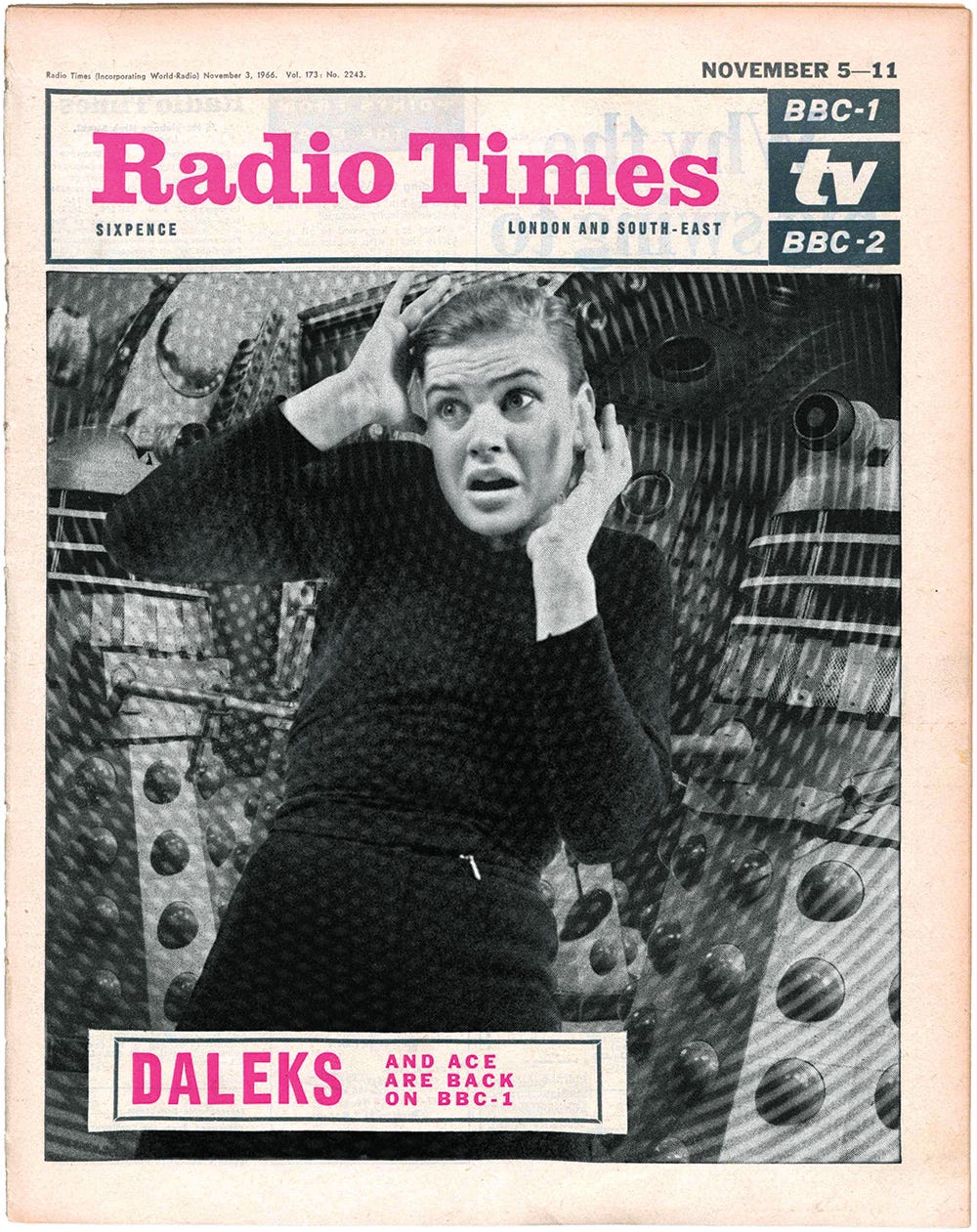Time and Relative Dimensions in Space
Originally written for Sophie's World; my Doctor Who related exhibition - 9.5.2013
Carole Ann Ford and William Hartnell in Doctor Who, 1963. Photo © BBC.
So here's the dilemma. I'm seven years old and I'm watching an episode of Doctor Who on an old black & white cathode ray tube, but this is no ordinary episode. This is the one where William Hartnell is about to drop to the ground and regenerate into Patrick Troughton. There are no repeats, there are no video tape recorders, in fact if I miss this, I'll probably never get the chance to see it again - ever! And my father is saying "C'mon, if we don't leave now we'll miss the start of the film," and I don't want to miss the start of the film because he showed me the billboard for it just the other day and it looked great! I use the 'tying my shoe laces slowly' technique and just manage to delay the departure long enough to see the complete regeneration... relief! A short journey in the old van, a couple of clipped tickets and we're in. In for a total mind-blowing head!%@k experience for a boy of seven. Fantastic Voyage it was called and it certainly lived up to its title.
September 1966 was the month I realized that I loved science-fiction, but more importantly I had my first awareness about the passing of time and the seasons. I vividly recall staring at the calendar on the wall of the classroom at Stanley Park junior school as the leaves turned brown and floated to the ground outside our window, and it suddenly all became clear.
Time was passing.
Just as the seasons came and went, so did the Doctor. At first he was the grumpy old man who I really wanted as my own Grandfather. I watched him every week, except when he wasn’t on the telly and then, instead I would project him onto the bedroom wall with my Chad Valley projector that I got for Christmas.
The Zarbi, the Cybermen and of course the Daleks. How could he possibly defeat them all!?!





